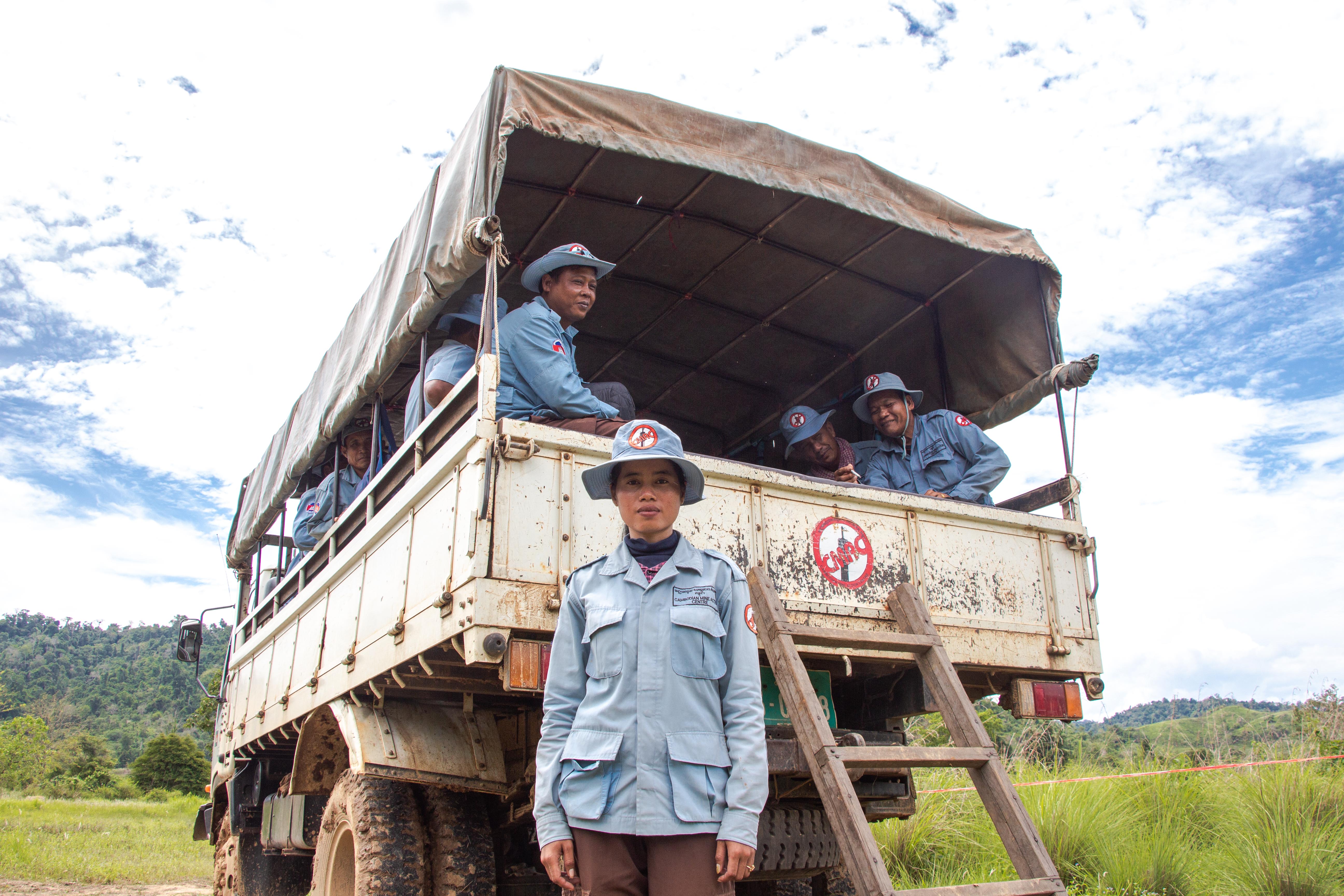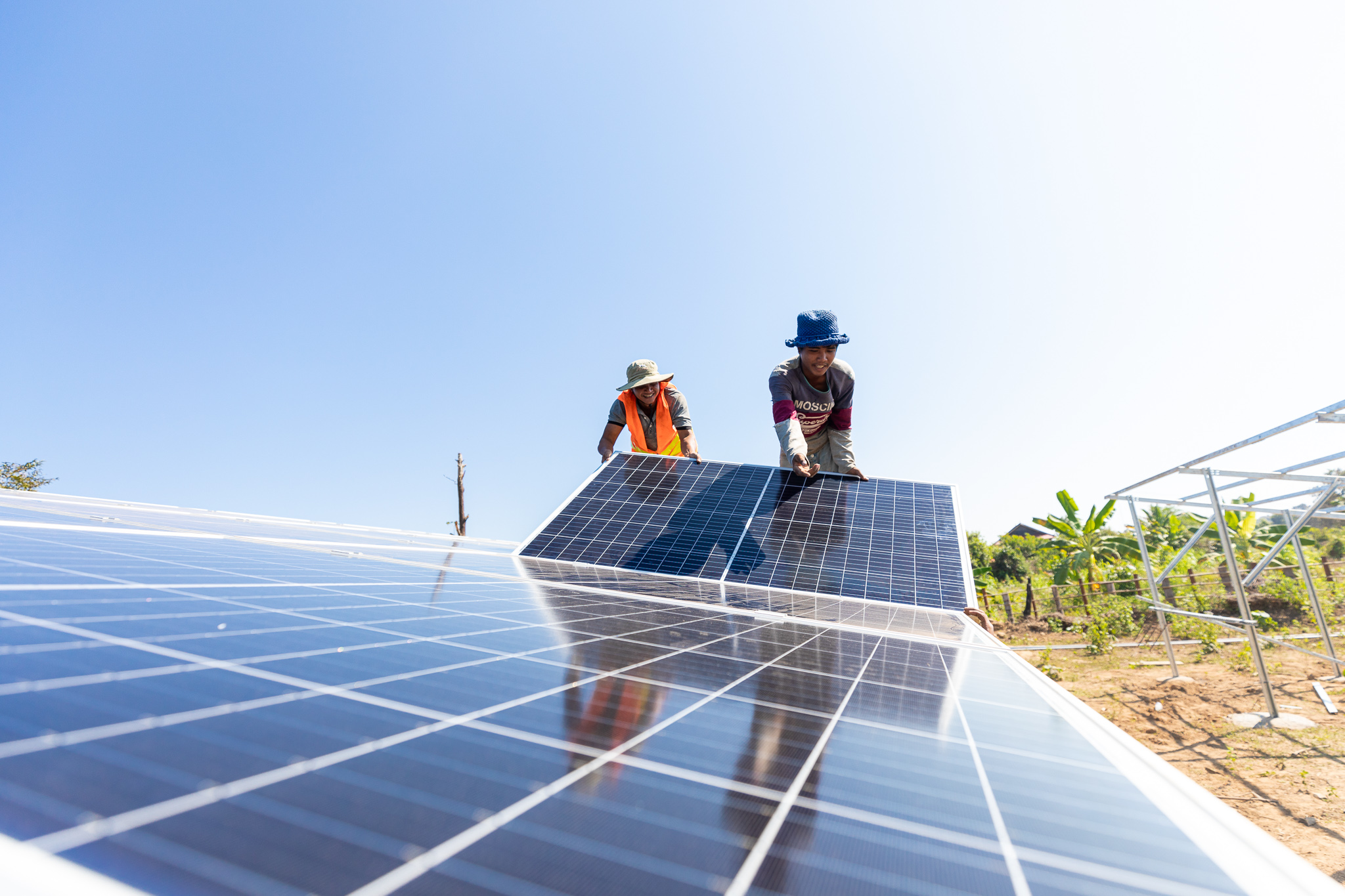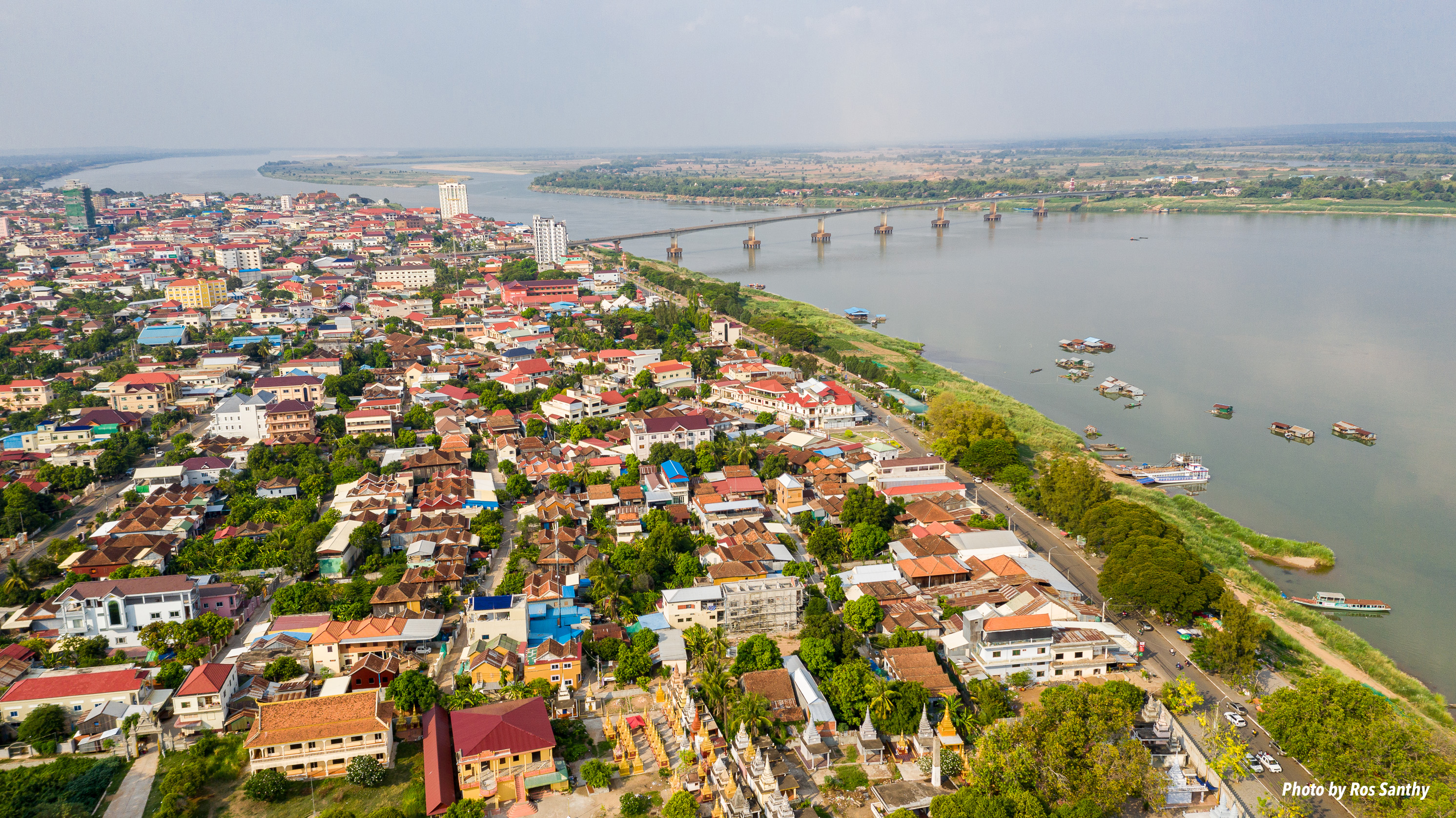Remarks by Ms. Alissar Chaker, UNDP Resident Representative
Ms. Fabienne Michaux, Director of UNDP SDG Impact
Excellencies, distinguished guests, ladies, and gentlemen, esteemed colleagues
Good afternoon!
I would like to welcome you together with the UNDP Sustainable Finance Hub to the virtual launch of the SDG Impact Standards in Cambodia. I am glad to note the participation of key ministries and private sector representatives and look forward to working with you all to expand efforts for accelerating sustainable development in Cambodia and to make your valuable contributions more visible to the public.
The emphasis on sustainability
The pandemic was taxing but it also taught us valuable lessons and exposed important blind-spots. Science demonstrated the links between the pandemics and the current industrial and socio-political systems causing the degradation of nature and social inequalities. The root cause of COVID-19 was the transmission of a virus from animals to humans. The reasons are believed to be related to changes in land use and agricultural practices, legal and illegal wildlife trade, deforestation, poverty, poor sanitation, and lack of education and awareness that helped to create the optimal conditions for the virus to thrive and become so harmful.
The pandemic and subsequent lockdown have shown that the cost of these externalities has become too hefty to continue ignoring it. A green and inclusive recovery is therefore the sure path to a more resilient future, without ignoring the informal sector and micro and small businesses and other people that risk to be left behind.
The UN estimates that achieving the SDGs globally requires overcoming a critical financing gap of US$ 3.7 trillion per year (OECD/UNDP Scoping note for the G20 Development Working Group, 2021). It recognizes that the private sector has a fundamental role to play if the world is to achieve these Goals, and to ensure economic growth and poverty reduction that does not come at the expense of environmental costs, and social disparities and inequalities.
The 2030 Agenda and SDGs was adopted by leading private sector entities as a global framework to capture the benefits and possible trade-offs of sustainable development. This meant encouraging greater SDG-aligned investments from institutional investors and corporations, using the 2030 Agenda as a proactive roadmap for capital deployment, rather than exclusively a framework for the retroactive and often public finance-focused assessment of impact.
The role of the financial sector is critical in catalyzing these changes namely by making impact investment the norm (and not the ideal) and by providing capital for innovation and for achieving the SDGs.
The business case for achieving the Global Goals is strong worldwide. But in Asia, it is particularly well placed to reap the collective benefits as noted in the 2017 report on Sustainable Business Opportunities in Asia published by the Business Commission initiative. Asia has sturdy, capable businesses with value chains involving millions of enterprises. Many Asian governments are willing and able to shape market activity and investment in a way that achieves broad nation-building goals. For these reasons, more than 40 percent of the US$12 trillion in business opportunities associated with the Global Goals around the world are, here, in Asia.
Investment and business landscape in Cambodia
Prior to the pandemic, Cambodia achieved strong economic growth, with an average GDP rate of 7% per annum over the last decade. But in 2020 the GDP growth rate fell to -3.1%, while poverty rate increased by almost 5 percentage points, according to a study on the impact of COVID-19 in Cambodia by the Ministry of Economy and Finance and UNDP. Last year, economic growth retuned to a positive number. The government has a preliminary figure of 3% GDP growth in 2021 and has estimated 5.6% and 6.7% for 2022 and 2023, respectively (MEF, 2021). By sector, the garment and manufacturing sectors, along with construction, remain the main drivers of growth, followed by transportation, communication, trade, and hospitality sectors.
The private sector has driven growth and job creation in Cambodia’s economy which has the characteristic of fewer state-owned enterprises, compared to other neighboring countries such as Thailand, Lao, and Vietnam (Emerging Markets Consulting, 2017).
The private sector in Cambodia, will increase in relevance in the near future. The UNDP Development Finance Assessment updated in 2021 projected that the shares of Foreign Direct Investment and Domestic Private Investment could increase from 11.4% and 8.0% of GDP in 2020 to 13.7% and 10.3% of GDP in 2025, respectively.
Let us not forget that private sector employs about 88% of the total labor force according to the latest Cambodia Socio-Economic Survey in 2019.
In addition to creating employment opportunities and driving economic growth, private sector is the main source of fiscal revenue. This revenue allows the government to address various development challenges including the provision of essential public goods and services. Most importantly, we see increasingly the role of the private sector in promoting transformational changes and in supporting the acceleration of the Cambodia SDGs achievement.
Given the private sector’s significant role, integrating sustainability at the core of businesses, and aligning internal processes, practices and decision making is crucial for accelerating the achievement of the Cambodian SDGs.
Why the SDG Impact Standards are important
While Fabienne will present in a few minutes the SDG Impact Standards and their importance, I would like to highlight few points:
- Achieving the Cambodia SDGs is a whole-of-society endeavor. It requires partnership among the Government, the private sector, civil society, and academia to make sure that the Kingdom is on a strong development track that is inclusive, green, and thus resilient. Indeed, the 2030 development agenda is not a government agenda; it is everybody’s business.
- Investing responsibly is increasingly becoming relevant for investors who want to reap the benefits of rapidly declining costs of new technologies and significant growth potential in renewable energy generation, which are central to achieving a low-carbon economy and insuring business continuity as the pandemic and conflicts wreaked havoc on oil markets.
- Enterprises seeking investment can get a head-start by adopting global independent management standards, such as the SDG Impact Standards for Enterprises. These Standards guide enterprises to making decisions that integrate sustainability throughout their operations.
- Having this common language of sustainability management that the SDG Impact Standards offer, helps both the investee and investor not only to do good business but also to streamline due diligence in day-to-day management, ensuring that both parties are contributing to wellbeing and prosperity of the society. When both parties are speaking the same language on how they manage the impact they have on their communities and their environment, it makes it easier to do business, be innovative and work towards a resilient business and investment model that does good while also making a profit.
At UNDP Cambodia, we promote and engage in private sector partnership for achieving the SDGs in various forms through:
- Building platforms and coalitions to facilitate SDG-aligned investment. Cambodia’s SDG Investor Map is under development with technical support from the UNDP Sustainable Finance Hub’s SDG Impact. The Map is a tool that generates country-level data and insights to inform private investors (funds, financial institutions, corporations, foundations, etc.) on economically viable investment opportunities and business models that also advance sustainable development and accelerate the achievement of the Cambodia SDGs.
- Supporting the Royal Government of Cambodia on the first sovereign bond issuance in Khmer Riels and elaborating a working plan with the Ministry of Economy and Finance to move towards green financing mechanisms, for example, green or SDG bonds.
- Advocating on key development issues such as climate action, and nature-based solutions and supporting relevant innovation to increase trade competitiveness amid global calls for stronger climate commitments and respect of human rights and wellbeing.
- Promoting socially and environmentally responsible business models for access to clean energy, energy efficiency and circular economy.
- Promoting innovative solutions to social and environmental challenges, notably fostering sustainable transport, MSMEs digital transformation for business continuity with Ministry of Commerce, Khmer Enterprise, supporting social protection systems for the inclusion of persons with disability and the elderly, and digital cash transfer for poor households.
- Expanding financing options for women via a credit guarantee mechanism which was recently launched with the Credit Guarantee Corporation of Cambodia.
In closing, I would like to highlight that sustainable development is the core focus of UNDP. UNDP strongly believes that development must balance social, economic, and environmental sustainability and that progress should be for all leaving no one behind. This is one of the key lessons that the pandemic has taught us! Also, the ambition of the 2030 Agenda for Sustainable Development cannot be achieved solo or in silos. I am, therefore, encouraged by the diverse participation in this event, and would like to call for collective action to accelerate the progress towards the SDGs in Cambodia. UNDP stands ready to accompany this effort as needed. You can count with us!
Wishing you good continuation and fruitful deliberations.
Thank you!

 Locations
Locations



















